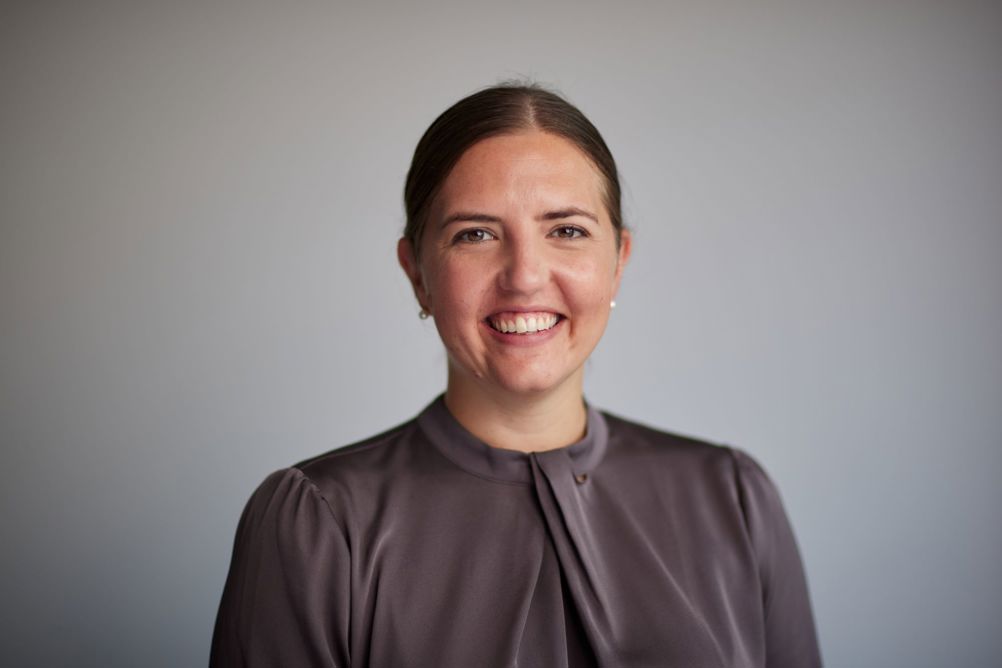You recently wrote about your – completely understandable - love/hate relationship with International Women’s Day. Is that same dynamic at play with INWED or is it more nuanced?
I had to reflect deeply on why I have different feelings toward International Women’s Day (IWD) and International Women in Engineering Day (INWED). While IWD brings both celebration and frustration for me, INWED is primarily celebratory due to its focus on encouraging a changing workforce in engineering. By having a sector-specific focus, we can set targets and measure the progress of reaching gender balance in traditionally male-dominated fields.
How did your own engineering journey begin and were you aware of the gender imbalance in the sector from a young age?
For myself and a lot of my female engineering peers, our route into engineering was via our high school courses. A guidance counsellor once told me, “You’re good at math and physics, so you should do engineering.” There wasn’t much discussion about what the role of an engineer included, just a push toward the field based on my skillset.
I applied to various university programs, including different types of engineering, science, and even journalism! Ultimately, I chose engineering for its career opportunities and my love of mathematics and physics.
I wasn’t conscious of the gender imbalance in engineering growing up, but on reflection I certainly associated the profession with men (they were the ones interviewed on TV shows about great engineering feats). The reality of the gender imbalance struck me first when I started my undergraduate degree and my class was only 20% women. Some of my female friends were in specific disciplines of engineering and the class was made up of 10% women.
It’s different now as my alma mater, the University of Toronto, now has 40% female enrolment but achieving gender balance in the workforce will take at least a full generation. This is why INWED is significant to me; it recognises the progress and celebrates the improvements while highlighting the need for continued support.
After gaining your engineering degrees in Canada, you moved to Oxford to study for an MBA. What do you feel the MBA added to your skillset and would you recommend it as a career path to engineering grads?
My Engineering degrees equipped me with technical skills and a problem-solving mindset that were relevant beyond the engineering field. During my time as a Transportation Engineer, I became interested in how transportation projects are funded and operated. I realised I needed additional knowledge in finance, economics and business, which led me to pursue an MBA.
The MBA provided a broad education, exposing me to various topics and a new business vocabulary. I learned the ability to host conversations on topics where I wasn't the expert in order to use my team's expertise to make the right decisions. It also exposed me to a whole world of different professions and ways of working, giving me a broader view on how the business world operates.

I would highly recommend an MBA to those wanting to understand business better. Like engineering, it’s not a guaranteed career path, but it's extremely complimentary to engineering skills and you'll get to meet some really wonderful people.
Can you tell us a bit about how Brill Power came into existence, what marks the company out in the battery space, and what your role involves?
Brill Power's technology was invented by my co-founders during their engineering PhDs at Oxford University, but invention and a company are two different things. I joined initially for a course credit in entrepreneurship during my MBA but soon became passionate about the technology and its potential to reduce battery waste. I knew I wanted to be part of making it a success, and we founded the company together.
My role is Head of Finance and Operations, which means that I manage the company's finances (both in our day-to-day operations, as well as our long term financial plans), as well as our operations (which can be a wide range of things at a startup, including HR. On top of my management role in the business, I am also a Director on our Board of Directors, where I represent the founders and early shareholders as well as the organisation.
Interestingly, although I'm not involved in engineering design work, I find that my work at Brill Power connects me to engineering more than some of my previous roles. I am responsible for strategic technology development, project design, and operational efficiencies, whereas much of my previous engineering roles involved writing reports and communicating to advance design recommendations.
As the only woman on the company’s senior management team, do you sometimes feel outnumbered by your co-founders, or perhaps an added weight of responsibility as the lone female voice in exec meetings?
Despite being the only woman on Brill Power’s senior management team, I rarely feel "outnumbered". My male colleagues trust and support me, and I feel heard.
I do feel the weight, however, in other contexts, with a new group or public speaking event where I'm a gender minority. I feel an added pressure to present myself without any perceived weakness, as women are often judged more critically than men.
What’s the best piece of advice you can give to young women considering a career in engineering?
For those considering a career in engineering, I would definitely recommend it. Engineering gives you a lot of great career options, helps you understand how the world around you works, and helps you develop lifelong skills and friendships.
For those already in the field, there are many ways the gender imbalance will present itself, some positive and some negative. You will find your own best way to navigate those. Trust yourself, take risks, and find your path.











Microplastics evading capture in wastewater treatment
Can anyone provide a link to a credible peer-reviewed study demonstrating toxicity from microplastics? This report uses words like ´potential´ and...